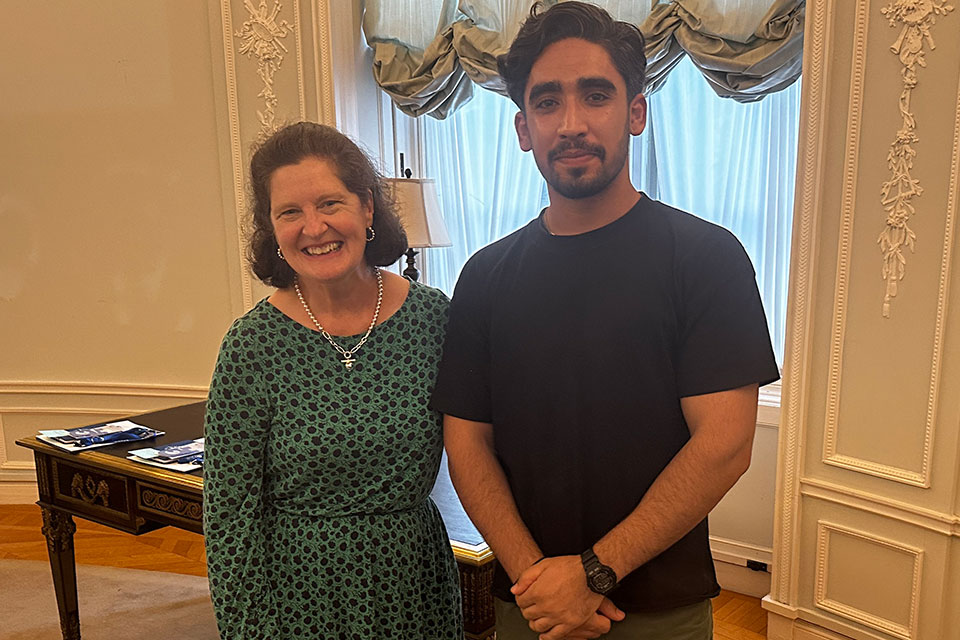Salve Regina welcomes more Afghan refugee students to campus

Three additional Afghan students, displaced from their native country since the fall of Kabul in 2021, have arrived on Salve Regina’s campus and are enrolled as transfer students. They join four of their compatriots who enrolled at Salve Regina in January through a developing national initiative that creates higher education pathways for refugees from around the world.
One of the new students had been attending classes at the American University of Afghanistan before being evacuated to Kyrgyzstan, where they continued their studies at the American University of Central Asia (AUCA) in Bishkek. Two of the students were already studying at AUCA and were unable to return to Afghanistan following the fall of Kabul. Upon their individual arrivals to the U.S., they were assisted by the resettlement agency Dorcas International while residing in temporary housing in Providence.
“Being here feels like a dream, to be honest,” said Navid Mohmand. “It was totally unexpected for me, but now that I am here – the behavior of people I am seeing is very friendly and welcoming. The professors are really helpful.”
In addition to receiving tuition support from Salve Regina, the students are receiving funding and support from the Qatar Scholarship for Afghans Project (QSAP) to offset the costs of room, board, and other living expenses. QSAP, founded by the Afghan Future Fund, Education Above All Foundation, Yalda Hakim Foundation, Schmidt Futures and Rockefeller Philanthropy Advisors, and administered by the Institute of International Education, is a unique partnership welcoming 250 displaced Afghan students to more than 40 U.S. college and university campuses.
The students have also been greatly assisted by a community development grant from Centreville Bank, which helps support essential costs related to settling into their new homes on campus. RI Reconnect, a program of the Rhode Island Office of the Postsecondary Commissioner that aids refugees and other populations in completing postsecondary education, is assisting with the cost of books as well as connecting the students to other helpful resources in the state as they complete their education and enter the workforce.
Erin FitzGerald, director of the Center for Global Education and Fellowships, who is coordinating the initiative at Salve Regina, said she believes the majority of the students’ needs, including being placed with jobs on campus, have been met through the support of multiple University offices, together with resources and services provided by external partners.
The center sponsored a one-day training in August for 30 Salve community members offered by Every Campus a Refuge and the National Association of System Heads. The training focused on developing knowledge about the global migration crisis and developing strategies for making university campuses more welcoming to refugee students.
“These are such talented students whose educations and futures have been dramatically impacted by the crisis in their country,” FitzGerald said. “I am confident that our community will benefit as much from their presence and their perspectives as they benefit from the support offered them from Salve and other partners.”
As an active member of the Presidents’ Alliance on Higher Education and Immigration, Salve Regina is among universities collaborating on the effort to enroll refugee students. The alliance is working in partnership with the United Nations Refugee Agency to achieve the ambitious goal of providing 15% of eligible refugees with access to higher education by 2030. The agency reports 79.5 million people are currently displaced worldwide, including 26 million refugees. Of these, only 3% of college-eligible refugees are currently able to access higher education.

